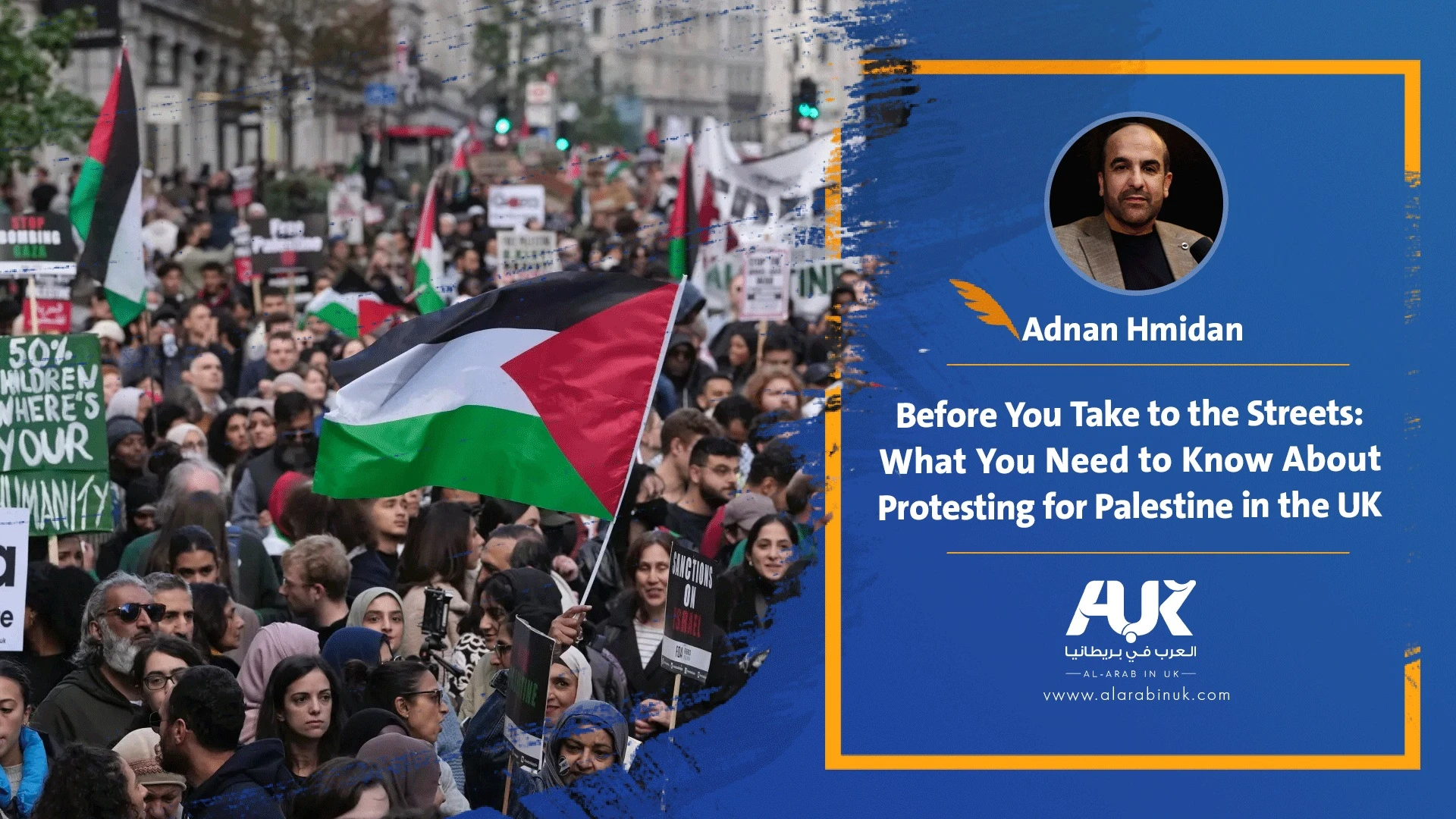Before You Take to the Streets: What You Need to Know About Protesting for Palestine in the UK

The UK remains one of the few Western countries where people still enjoy a relatively wide space to express solidarity with Palestine—certainly more than in places like France or Germany, where the restrictions are much tighter.
But even this space has its limits. Good intentions alone are not enough to keep you out of legal trouble. Many people have found themselves unexpectedly facing police action—not because of what they stood for, but because they weren’t aware of certain basic legal details. From my experience on the ground, here are a few key points I believe everyone should take seriously before joining any public demonstration.
First of all, don’t attend a protest if you don’t know who’s organising it.
It might sound obvious, but it makes a big difference. The organiser is the one responsible for liaising with the police, agreeing on the terms of the protest, and ensuring legal coverage for participants. If the organiser is unknown, informal, or unregistered, you may unknowingly find yourself part of an unauthorised gathering, which could be challenged—especially if there are disruptions or if the agreed time or conditions are not respected.
Secondly, understand that marching is not the same as static protesting.
You don’t need prior approval to hold a static protest or vigil in a public space. However, marching from one place to another is a different matter altogether. Under UK law, any procession on public roads must be coordinated in advance with the police. Otherwise, it may fall under what is known as Section 12 of the Public Order Act, which allows the police to intervene if a procession takes a route not agreed upon. Many people have ended up in trouble simply because they followed a crowd after an event, thinking it was fine to walk through the streets without realising it hadn’t been authorised.
If the organisers ask you to leave, do so promptly.
In most cases, this means the official timeframe for the protest has ended. Staying after that could result in police enforcement under Section 14 of the same law, which allows them to break up gatherings deemed to pose a risk to public order. Refusing to leave, even peacefully, can lead to arrest.
Yes, we know—not every police officer is fair.
Racism and bias do exist in law enforcement, and that’s a reality we cannot ignore. But we must remember: our problem is not with the police organising the traffic on the day—it’s with the occupation we are protesting against. If we follow the law and something still goes wrong, we can hold officers accountable, file complaints, and even pursue compensation. But if we’re the ones violating the legal framework, we give them the upper hand and lose credibility in the process.
Also, don’t panic if you’re stopped or questioned.
Being detained or spoken to by police doesn’t mean you’re guilty of anything. There’s a big difference between being questioned and being charged. Many cases that went to court ended in acquittal, and in some instances, those involved even received compensation. Know your rights, stay calm, and get legal advice if needed.
Ultimately, the message is not to leave the streets—but to stay in them with awareness and purpose.
The Palestinian voice in the UK must remain strong. We need protests, vigils, and public expression—but we also need collective, organised, and supported action. Lone acts of defiance without backup or legal cover can lead to unexpected costs, not just emotionally but financially and legally.
Standing up for Palestine is not only a right—it’s a responsibility. But doing so effectively in the UK means knowing how to navigate the law, protect yourself, and strengthen your voice without risking its silencing.
Read More:
ShortURL ⬇


